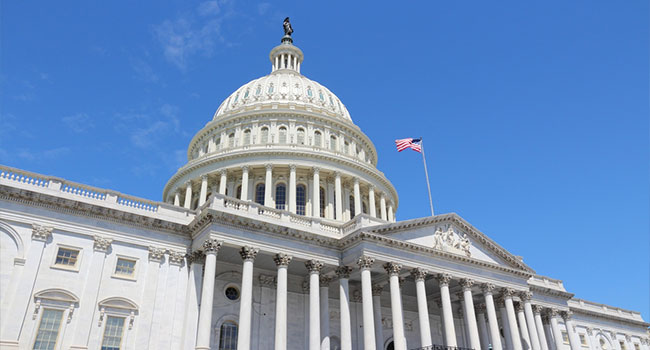
House Homeland Security Committee Chairman Expresses Opposition To Moratorium on Facial Recognition
At a Thursday hearing, Rep. Bennie Thompson said he is not on a “moratorium route” but supports regulation of the software, which has been found to have accuracy issues for people of color.
- By Haley Samsel
- Feb 07, 2020
Following a House hearing on Thursday that addressed the government’s use of facial recognition technology, House Homeland Security Committee Chairman Bennie Thompson (D-Miss.) told reporters that he does not want to pursue a federal moratorium on the use of the software.
Civil liberties groups have called for a ban on the technology, criticizing how police and other government agencies, particularly Customs and Border Enforcement, use facial recognition to identify potential suspects or verify people’s identity when entering the country.
After the hearing, Thompson told media that while he is concerned about privacy rights, he is not inclined to take the route of a moratorium, a proposal that several of his Democratic colleagues have considered.
"I want to put the safeguards in place so that as we roll out technology we can assure the public that this is not an invasive technology," Thompson said, according to The Hill. “We're not prying in folks' bedrooms. This is strictly a method of identification that helps keep us safe. And I think that would not put me on a moratorium route, but it would put me on the route to get us to 100 percent [accuracy].”
Read More: Security Industry, Police Groups Urge Congress Not to Ban Facial Recognition Technology
Thompson’s comments referenced recent academic studies and a report by the National Institute of Standards and Technology finding that a majority of facial recognition systems used in the U.S. are more inaccurate for people of color than white people. In NIST’s December study, Native Americans had the highest rates of false positives, while African-American women were most likely to be misidentified in a law enforcement database.
John Wagner, the deputy executive assistant commissioner of CBP’s field operations office, said that the agency is using technology that scored well in the study conducted by NIST, a federal agency within the Department of Commerce.
The top Republican on the House Oversight and Reform Committee, Rep. Jim Jordan of Ohio, has said that the government should “pause” procurement of new facial recognition technology, according to The Hill. He told reporters last month that he is working with Democratic colleagues to craft legislation to do so.
Read More: Booker Introduces Legislation to Ban Facial Recognition From Federal Public Housing
"Tell us what you're doing. Tell us how you're doing it. Tell us what agencies are using it, if at all," Jordan said in reference to software developers. "And also, while you're telling us that, don't expand."
About the Author
Haley Samsel is an Associate Content Editor for the Infrastructure Solutions Group at 1105 Media.